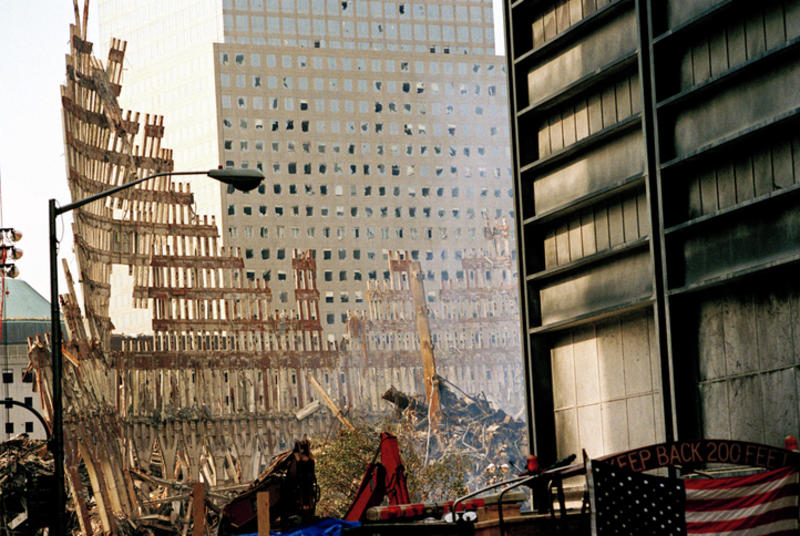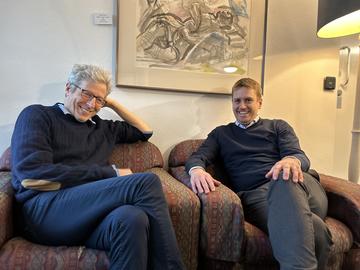FAILURE IS THE NEW SUCCESS

FAILURE IS THE NEW SUCCESS
A remarkable new book paints a searing portrait of our era of sham politics and fake wars
Published: 13 December 2023
Author: Richard Lofthouse
Share this article
Wreckonomics: Why It’s Time to End the War on Everything, by Ruben Andersson and David Keen
Published by Oxford University Press on December 1st, 2023, this book is bound to make waves. The authors contend that chronic, damning failure in politics and public policy has become an addictive way of achieving power and personal gain. Such behaviour rarely gets punished because it is so hard to see clearly, and because its special party trick is to slam its critics, branding them a security threat and silencing debate.
It’s too easy, and highly tempting, to read the book through an immediate, British lens.
The day this review was written former Prime Minister Boris Johnson was testifying to the COVID Inquiry; swirling around it were attempts by the current Prime Minister Rishi Sunak to change the law so as to legally send refugees to Rwanda, to ‘stop the small boats.’
These disparate events touch each other, once you’ve read the book carefully, not as a cheap conspiracy theory but as a pattern of cause and effect, within which actors pursue advantage while exporting the inevitable costs to somewhere or someone else, hoping not to be brought to account.

The current British Rwanda policy is nowhere mentioned in the book, while Russia’s ongoing onslaught against Ukraine is only mentioned in a very sage moment towards the end, when the authors note that when a real war hits us we’ve almost forgotten what it is.
Meanwhile the rest – the War on Terror (with multiple sub-wars culminating in Afghanistan), the War on COVID, the War on Narcotics (with particular reference to Mexico, the Philippines and the US) and the War on Immigrants: these are all pseudo wars, orchestrated if not always exactly created by powerful Western actors to prosecute other, highly attractive objectives, ranging from power grabbing to personal gain.
The book covers enormous ground over 300 pages but it is written with great zest, both academics (pictured right: David (L), Ruben (R)) having once worked as journalists, and both seasoned travellers and researchers in places where Easyjet emphatically does not fly – David’s Oxford DPhil (St Antony’s, 1986) on the politics of famine in the Sudan, Ruben a frequent traveller to conflict-hit countries like Mali, not at all for the faint of heart. They have tasted of what they speak, so rare these days for career academics.
The title is in fact an acronym, which might seem contrived on first sight. ‘W’ stands for ‘War fix’; ‘R’ for rigging; ‘E’ for exporting the costs; ‘C’ for cascading consequences; ‘K’ for the knowledge-fixing that routinely ensues to ‘command the narrative’ in an optics-obsessed era.
Luckily, the acronym is both accurate and sufficiently baggy that it never becomes a straitjacket so much as a guide to powerful themes that the authors readily identified when they first met in 2015.
The foundational theme to global affairs since the end of the Cold War involved the West finding new enemies, and in that sense the authors readily accept that the Cold War itself sprawled on and over its ‘end’, with an enormous military-industrial complex in the US that quickly developed razor-sharp survival instincts.
Inside the Pentagon in the 1990s, we read, was a fake personal ad taped to a bulletin board. It read: ‘ENEMY WANTED. Mature North American Superpower seeks hostile partner for arms-racing, Third World conflicts, and general antagonism. Must be sufficiently menacing to convince Congress of military financial requirements.’
If there is a single quotation to hang the book on, it’s that one.
When 9/11 came along it was real. It was a real terrorist attack with real victims, as well as an absolute tragedy. But for such a tragic event it came like manna from heaven for a vast swathe of security contractors and other ‘interested parties’ whose existential crisis was suddenly over in one fateful morning.
From there, the ‘War on Terror’ proceeded at pace and became in numerous ways ‘imagined’, the enemy literally everywhere and nowhere, expanding to Iraq with vanishingly little evidential basis, the majority of the 9/11 plotters Saudi.
If this all sounds familiar, even wearily so, don’t worry. The book goes right out to Mali, to the Sahel, to the Canary Islands, to Morocco, to Libya, to Syria, and to Sri Lanka. It really hits its stride when we start to see how the ‘War on Terror’ subtly but powerfully created a secondary ‘securitisation of migration,’ or as Ruben puts it, ‘When the Berlin Wall fell, the borders went up.’
This is a highly original part of the book and maybe its greatest contribution. It also leads to a fascinating counter-party analysis where the bad guys, the ‘enemies’, know full well what they are doing, to game the situation to their advantage. In this the authors gratefully cite Fawaz Gerges’ 2009 analysis, The Far Enemy: Why Jihad Went Global.
Provoking the West became a great game after 9/11, and ‘has also been part of the strategy of the other terrorist elements – for example, ISIS in Syria, al-Shabab in Somalia, and a combination of al Qaeda and ISIS affiliates in Mali.’
Bring this back to Rwanda. The authors develop a longstanding trope of the fairground, where the stallholders are adept at spotting the gullible, and where the games are usually rigged in their favour.
In this telling, it is necessary to discard the arrogance of superiority that has so often and so disastrously guided Western policy and interventions. In this telling, Rwanda are playing Britain brilliantly, with huge sums of money already remitted by Westminster but no illegal migrants sent.
The authors here go back to analyse the 2006 ‘migrant crisis’, the first big one for Europe where before there had been little. A repressive Mauritanian government happily sent a load of migrants off on boats towards the Spanish Canary Islands. In doing
this they cleverly unlocked a vast stream of income from the EU back to them to ‘stem the flow’, and whenever the flow was in danger of being too stemmed they made sure a new flow began in the nick of time. It allowed the European politicians to crow
domestically about their immense success, while also renewing the threat in ways that justified further expenditure, and further ‘urgency’. It was convenient to all sides to let the ‘war against illegal migrants’ roll on.
Britain has recently seen a similar pattern in paying France to crack down on little boats crossing the English Channel. The boat arrivals have fallen but they haven’t fallen enough. That’s by no means the worst holding pattern for any politician wanting to show success without losing the benefit of the underlying ‘urgent crisis.’
The authors compare such situations to the obsession American leaders had with body bag counting in Vietnam. Complex, nuanced problems are reduced to a simple metric. If the numbers of boat migrants (or Vietcong) can be eliminated one by one, the job will be done. But in practice the job is never done. This is failure parading as ‘success’, but always resulting in one more throw of the dice.
Again and again throughout the book the authors wisely return to the Latin tag that unlocks most human behaviour: cui bono? ‘Who benefits’, or, ‘follow the money’.
Remember, the people smugglers sprang up at the very moment that migration was made illegal, and then as they started to mint money they were often being clandestinely controlled by the very authorities that were being paid to eliminate it, a ragbag of war lords and other militias and strong men – an ugly cast that surged into the vacuum left behind by Western military action in Iraq or in Libya, or in other parts of North Africa such as Morocco.
This is where we meet the ‘C’ in wreckonomics, or ‘Cascade’. The greatest number of terrorist attacks in Afghanistan and Iraq came after the US military interventions, in a deadly pact between a repressive state and opportunistic grass roots actors. They were then seized upon by the US to further justify/prolong/expand the intervention.
If you’re worried that this immense work of analysis sprawls, just revert to Chapter 1, which is like being punched repeatedly in the face:
‘The ‘war on terror’ has greatly boosted levels of terrorism and violence worldwide, at great human and financial cost: some US$8 trillion and 900,000 deaths between 2001 and 2021, according to Brown University’s Costs of War Project.
‘Wreckonomics is our label for a particular form of perverse systems dynamic in which such complex relations…tend to generate very destructive yet politically and economically profitable consequences.’
Does the experience of COVID really fit? Surely we would all agree that in this case the threat was real, and that it had nothing to do with borders precisely because viruses don’t respect borders and cannot be contained by them.
David says, ‘the crisis was real but it was framed in a warlike manner and that was damaging.’
One reads the COVID chapter with a sense of real culminative insight into the power of words, as much as anything.
Remember clapping for the NHS and the ‘frontline workers’? That’s military language that was used to frame the need for sacrifice to ‘wage war on’ and ‘defeat’ a mortal enemy. Except that it was a virus.
The authors argue that both the ‘let it rip’/ herd immunity/ laissez-faire solution was as problematic as the opposite, ‘lockdown and follow the science’ lobby. They are far more interested in the way that both extremes served to stifle robust debate at the very moment that it was most needed. Meanwhile, as we know now, all sorts of powerful games were being played to soak up vast public expenditure on dubious PPE contracts.
David says, ‘There was a strange combination of fatalism plus incompetence, hiding behind the formalistic doctrine of adherence to the science. Robust debate did not find enough of a role.’
The significant difference between COVID and the ‘War on Terror’ or the ‘War on Illegal Migration’, note the authors, was that the costs could not be hidden, so instead of wanting it to go on there was a strong desire on behalf of politicians that it go away. The authors readily make that distinction, as they do others.
There is too much here to discuss in a short review. The chapter on narcotics depicts another war almost more addictive to policy makers than the drugs they were claiming to crack down on. Robert Duterte, the President of the Philippines in 2016, paid the police for every drug addict they murdered, while he himself was addicted to fentanyl.
Always, such tactics pretend to tackle a complex problem with a simple solution, and always they fail, another enduring theme of the book even though it does not claim to analyse the broader issue of populism.
The authors note that they were inspired both by Naomi Klein’s The Shock Doctrine, and by Hannah Arendt’s concept of action as propaganda, or as David puts it: ‘Bring into existence a world that proves your worst fear, and then utilize that to achieve other goals.’
That is where Putin has been remarkably successful. ‘If we move from commercial to political gains,’ the authors note, ‘perhaps the largest beneficiary was Vladimir Putin,’ because he ‘successfully used high-profile aggression in the near-abroad to compensate for swindling domestic legitimacy; he also used foreign enemies to justify internal repression.’
These themes can be found anywhere in history. They are not unique to our own times. The authors readily accept that. But they have identified a particular expression of the war fix since the end of the Cold War.
In the most powerful missing example from the book – since it was already in press – we have Hamas’ attack on Israel on October 7. When some critics asked themselves what Hamas thought it could gain from such an apparently suicidal attack – well, they need to read Wreckonomics. All the answers are in it, ‘not a conspiracy theory but a decentralised assembly of interests.’
The publishing hinterland includes the very successful titles Freakonomics and Wikinomics, especially the first – ignore all that, the book stands up entirely on its own merits and couldn't be more timely as the world stumbles into 2024.
Lead Image: Steel Skeleton of World Trade Center Tower South (one) in Ground Zero days after September 11, 2001 terrorist attack which collapsed the 110 story twin towers in New York City, NY, USA. (Credit: Getty Images). Portrait of the Authors, Wolfson College December 4, 2023. (Credit: University of Oxford/Richard Lofthouse).
Wreckonomics: Why it's Time to End the War on Everything, by Ruben Andersson and David Keen, Oxford University Press, 1 December, 2023.
Ruben Andersson is a professor of social anthropology at Oxford's Department of International Development . He also authored No Go World (2019) and Illegality, Inc. (2014).
David Keen is a professor of conflict studies at the Department of International Development at the London School of Economics and Political Science. He is the author of The Benefits of Famine (1994) and Useful Enemies (2012).















